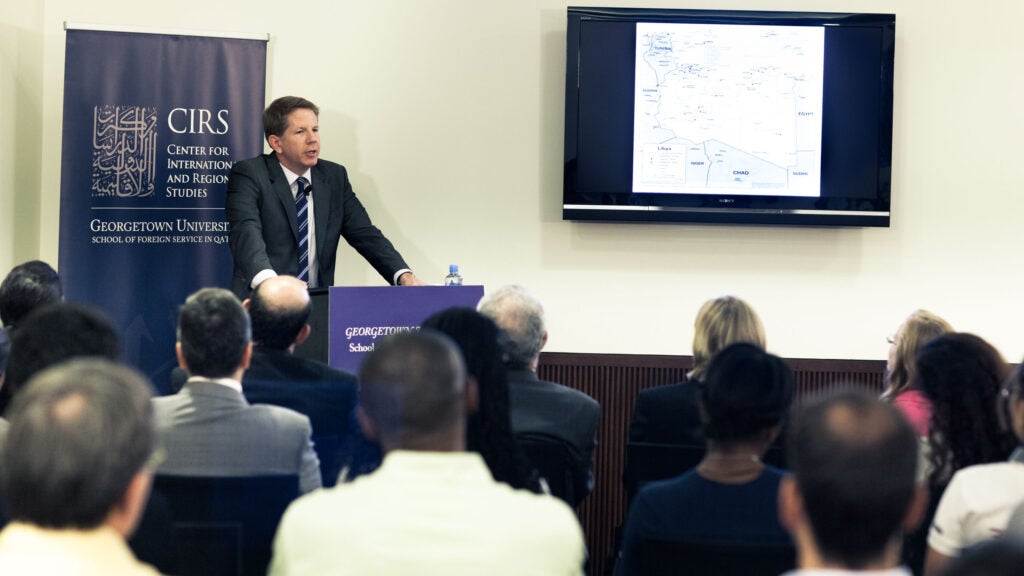Frederic Wehrey on Libya’s Future

The Center for International and Regional Studies (CIRS) at Georgetown University’s School of Foreign Service in Qatar (SFS-Q) recently held an evening talk delivered by Dr. Frederic Wehrey, a senior associate in the Middle East Program at the Carnegie Endowment for International Peace.
Speaking at the lecture titled, “Analogies at War: Libya’s aftermath and Syria’s Future”, Dr. Wehrey discussed the events that led to the conflict in Libya and what its similarities are with the situation in Syria. “The ‘Libya-model’, as it is being called, is quite unique in many ways”, said Dr. Wehrey. “For one, there were no boots on the ground. The coalition agreed on aerial attacks only. Secondly, the intervention was more multilateral and the forces worked with the rebels, to oust the government.”
Dr. Wehrey has been visiting Libya since the government toppled and has met with various militia and rebel leaders. ‘The revolution in Libya was brought about by the Libyans and the martyrs. NATO was only there to support their cause”.
Commenting on the situation in Syria, Dr. Wehrey said, “There was a consensus in the International community, in regards to the intervention in Libya. We don’t see that with the conflict in Syria.” Dr. Wehrey continued, “Also, we saw faster defection from the ruling party in Libya, which has still not happened in Syria.”
The noted author also mentioned that the Geography also helped with the brief war in Libya. Due to Syria’s location in the region, a direct NATO intervention might not be the best route.
Dr. Frederic Wehrey’s research focuses on political reform and security issues in the Gulf states, Libya, and U.S. policy in the Middle East. Prior to joining Carnegie, he was a senior policy analyst at the RAND Corporation where in 2008, he led a RAND strategic advisory team to Baghdad, Iraq, focusing on post-surge challenges in support of Multi-National Forces-Iraq (MNF-I).
Dr. Wehrey concluded by saying, “I am very hopeful for the future of Libya. It does have its problems but I still think the outcome will be very positive for the country and the region.”